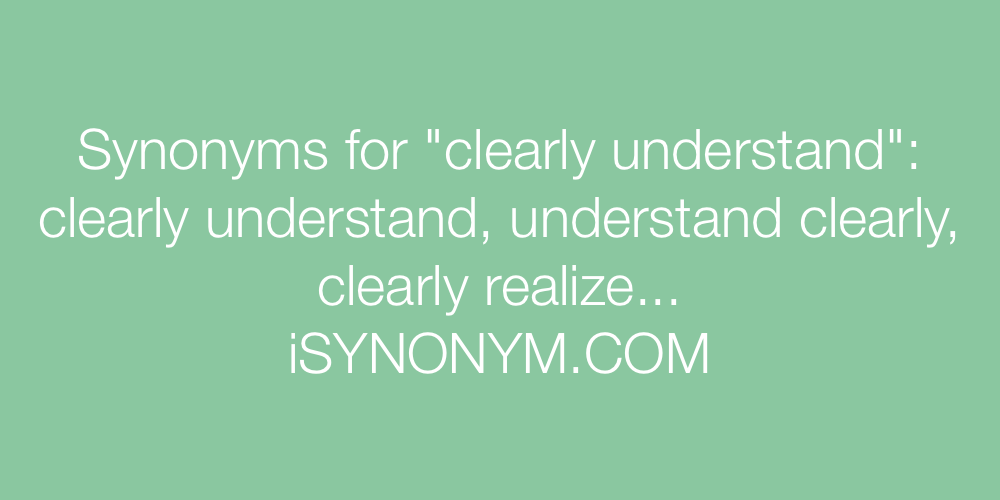

Dey laughed when dey heard me talk, an' I could not understand dem, no how.But this does not astonish us when we understand the difficulties which he was obliged to solve.He was older than I, experienced with women-a lover of women, I came to understand in time.Extract from : « Ancient Man » by Hendrik Willem van Loon.Then you will understand, and understanding, you will admire his courage.Extract from : « Brave and Bold » by Horatio Alger.But, bound as he was, we can understand why they looked in vain.I don't pretend to understand your game, but you may rely on my secrecy.Extract from : « The Spenders » by Harry Leon Wilson.I'm in the Critchleys' box to-night and I understand she's to be there.Old English oferstandan, Middle English overstonden, literally "over-stand" seem to have been used only in literal senses.

For this concept, most Indo-European languages use figurative extensions of compounds that literally mean "put together," or "separate," or "take, grasp" (see comprehend). German verstehen, represented in Old English by forstanden). Greek epistamai "I know how, I know," literally "I stand upon." Similar formations are found in Old Frisian ( understonda), Middle Danish ( understande), while other Germanic languages use compounds meaning "stand before" (cf.

"Among" seems to be the sense in many Old English compounds that resemble understand, e.g. That is the suggestion in Barnhart, but other sources regard the "among, between, before, in the presence of" sense of Old English prefix and preposition under as other meanings of the same word.Sanskrit antar "among, between," Latin inter "between, among," Greek entera "intestines " see inter-). If this is the meaning, the under is not the usual word meaning "beneath," but from Old English under, from PIE *nter- "between, among" (cf. Old English understandan "comprehend, grasp the idea of," probably literally "stand in the midst of," from under + standan "to stand" (see stand).


 0 kommentar(er)
0 kommentar(er)
